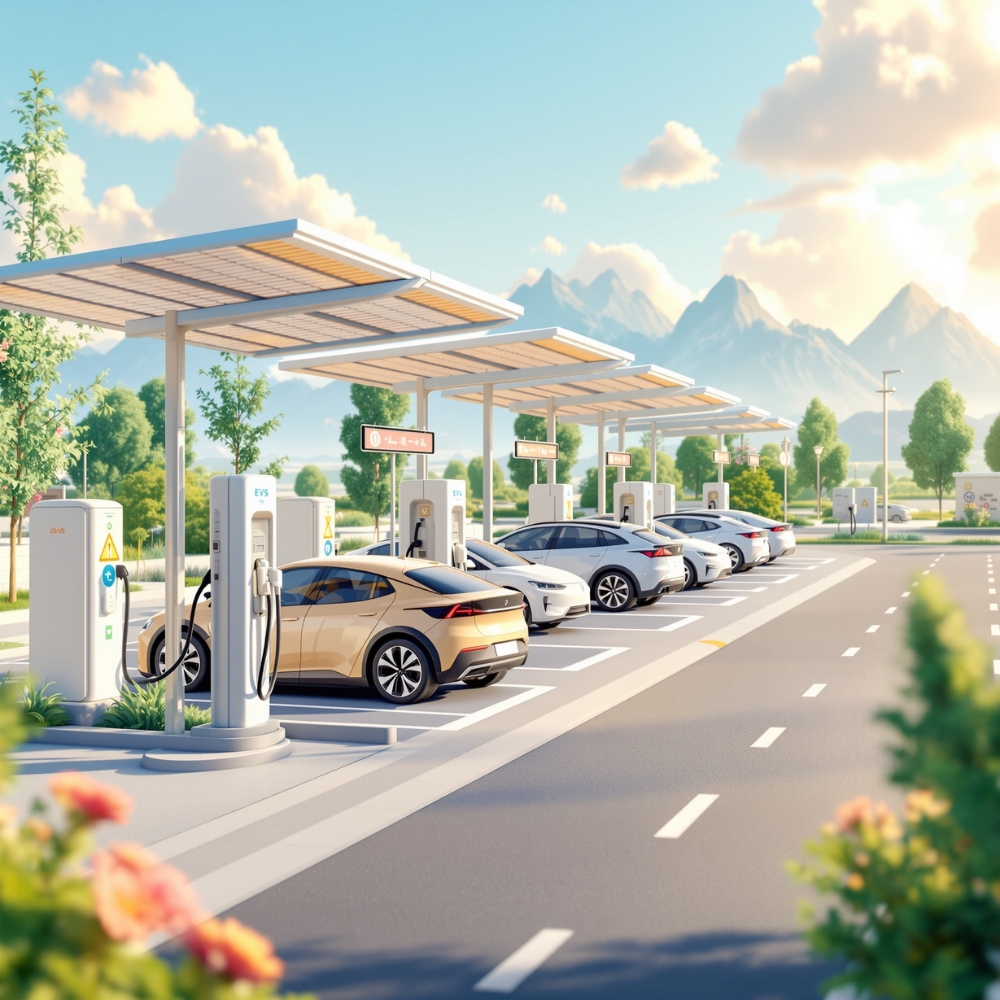
Want charging to feel like a background task, not waiting around? The trick isn’t exotic hardware - it’s smart planning. You place charging windows where they fit your day, use the fastest phase of each session, and let apps and automation handle the rest. Charging becomes incidental, and you reach your destination predictably.
Home is your biggest lever. Schedule charging to finish shortly before departure: cells start warm, you avoid holding high voltage for hours, and you have exactly the range you need. If your tariff offers night or dynamic prices, shift the session into cheaper windows automatically. For everyday use, a simple target (e.g., 70–80%) is enough; the night before a longer trip, set a higher target once - and drive off right after.
With a controllable wallbox, you set start/end times or percent-based targets. If you have rooftop PV, excess charging pays off: the car draws when the sun is out and pauses when clouds roll in. Many systems can choose between “as cheap/low-carbon as possible” and “ready by time X.” You save money and charge cleaner - without micromanaging.
Not all sites, and not all stops - are equal. Favor easy in/out locations with dependable power, and sync the stop with what you were doing anyway: coffee, restroom, short walk. Keep sessions short and strong instead of long and sluggish - take energy during the fast phase and roll out before power tapers. A quieter site a few minutes off the main route often beats the crowded hotspot with a big number on the sign.
Your car can do more than plug and go. Route-based charge planning gets the battery to the right temperature in time, so you take high power immediately at arrival. A target SoC instead of “always full” keeps the pack in a healthy range and saves time. Many models offer departure timers and plug-in preconditioning - step into a warm cabin without burning extra energy on the road.
Modern apps give you the comfort features that matter: live SoC, remote start/stop, schedules, and alerts when a target is reached or a charger becomes available. Paired with your energy manager or smart home, you can set rules (“charge if price < X” or “be at 80% by 7:30”) and let the system handle it. For trips, apps surface available chargers and handle transparent payment—so you pick the practical option, not just the theoretical fastest.
In multi-EV households, load management is your friend: the wallbox distributes power dynamically without popping breakers. Prioritize the car that leaves first or has the lower SoC. A simple routine works well: overnight both to a moderate target, morning priority to the commuter, the second car tops up later - hands-off and automatic.
Per-minute or idle fees make the last few percent disproportionately expensive. Plan to unplug before fee windows kick in, and avoid shared-power stalls if possible. On long drives, consistent, reliable power beats headline ratings - what counts is your km per minute and a smooth stop with no surprises.
Set departure times, define target SoC for weekdays and trips, use cheap price windows (or PV excess), and pick available, easy-access sites on the go. Charge briefly and purposefully instead of waiting for 100%, and let push notifications tell you when it’s done. Charging stays in the background - and you stay moving without losing time.
StromNow shows you available, suitable charging points, plans charge windows by time or price, factors in PV excess, and reminds you when your target SoC is reached - so smart charging just happens.